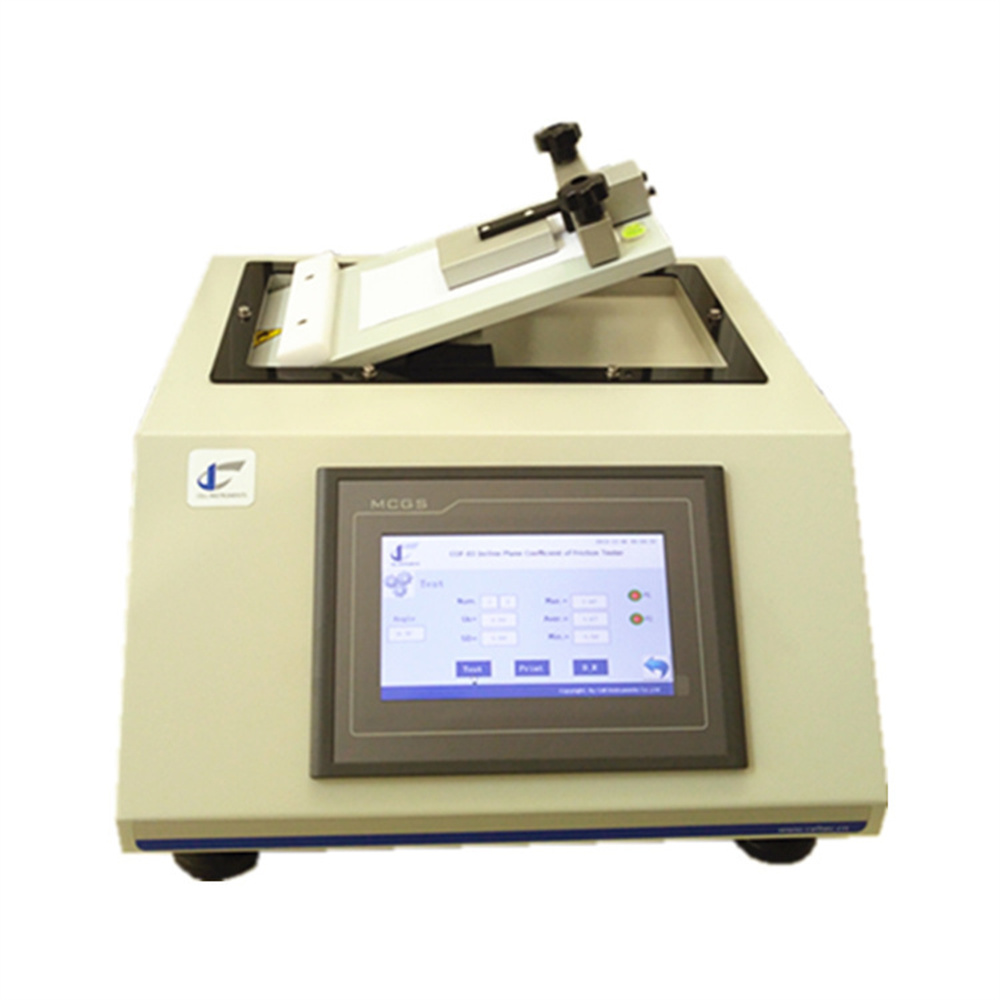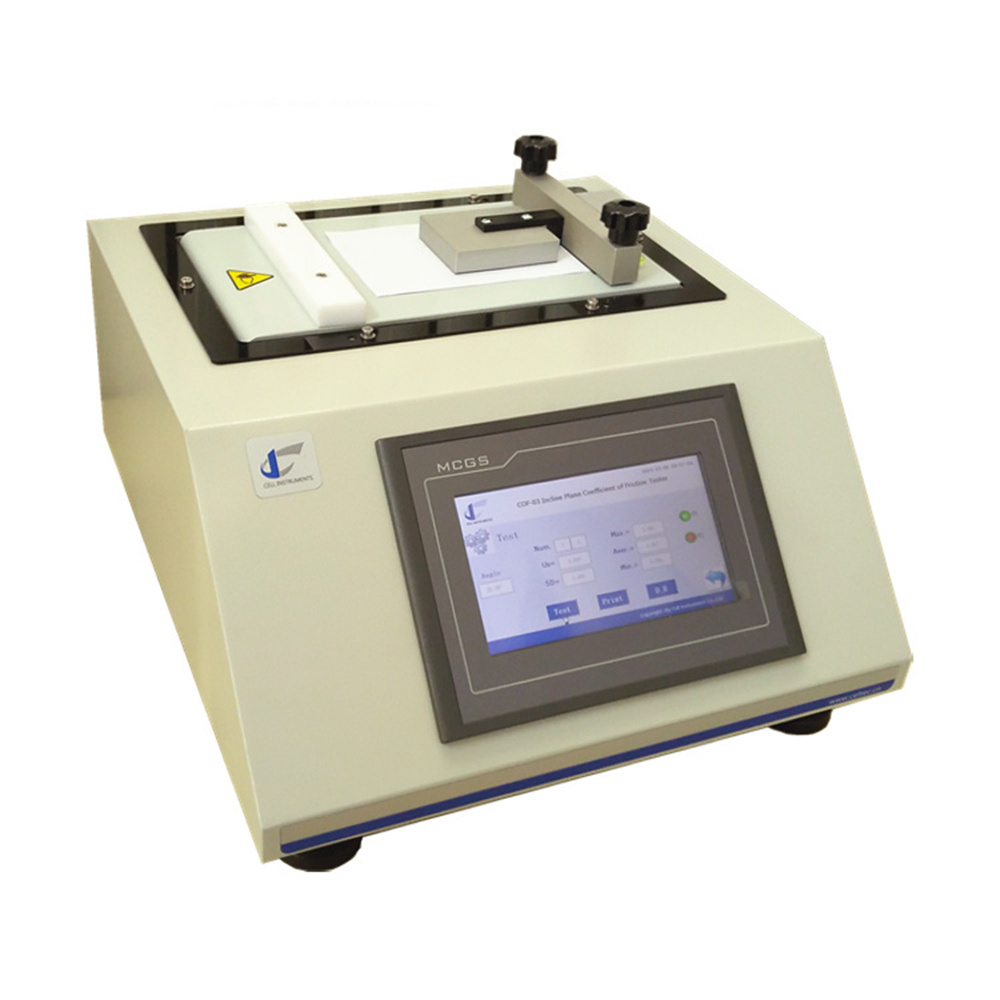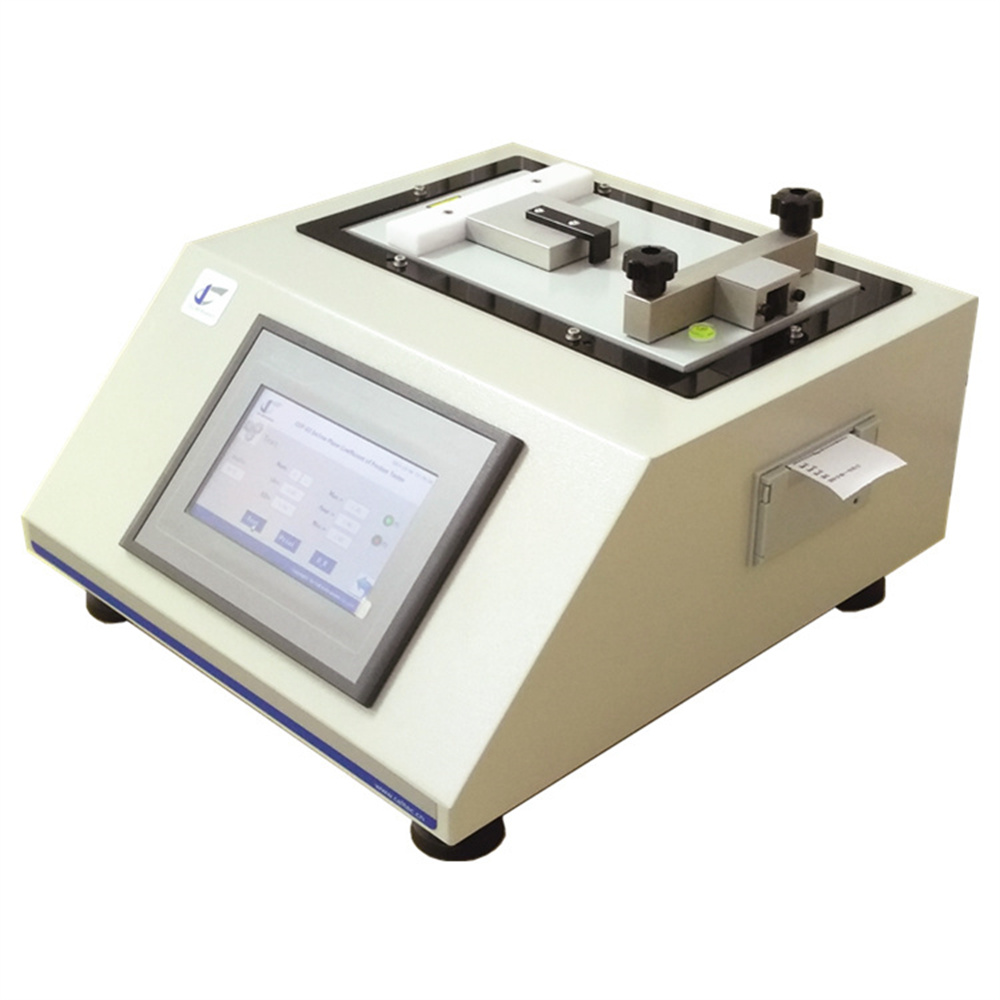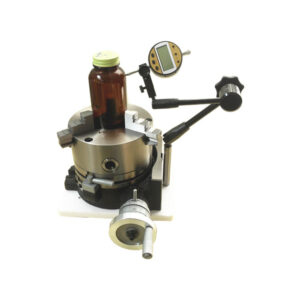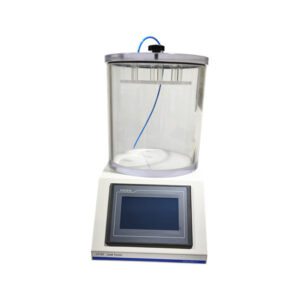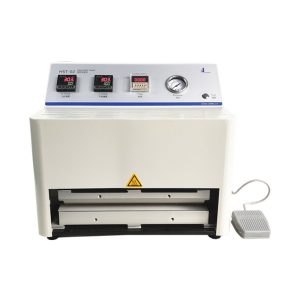Introduction to the Inclined Coefficient of Friction Tester
การ Inclined Coefficient of Friction Tester is an advanced instrument designed to measure the static coefficient of friction (COF) of a wide range of materials. Using a variable inclined plane and a sliding block, this tester determines the angle at which one test surface begins to slide against another as the incline is gradually increased. The device is ideal for testing various materials, including plastic films, rubber, paper, boards, woven fabrics, coatings, brake pads, textiles, and more.
This versatile tester is essential for industries such as packaging, automotive, textiles, pharmaceuticals, and food packaging, where accurate friction measurement is critical to ensuring quality, safety, and optimal performance. Whether you need to measure the friction of films, sheets, or industrial components, this device provides reliable results, helping users improve material handling, packaging design, and product functionality.
Principle of Operation
การ Inclined เครื่องทดสอบค่าสัมประสิทธิ์แรงเสียดทาน measures the static COF by determining the angle at which one material begins to slide on another inclined surface. As the incline is gradually increased at a constant rate, the surface of the material under test begins to slide. The angle at which this happens is measured, and the static COF is numerically equivalent to the tangent of that angle.
This method provides accurate friction values that are critical for understanding the behavior of materials in real-world applications, such as during material handling, packaging, and assembly. The Slide Angle Tester feature of this instrument ensures that accurate COF readings are achieved for a wide variety of materials.
Overview of Relevant Testing Standards
- แอสทาม D202: This standard provides guidelines for measuring the static COF of materials, particularly for films and packaging materials. It ensures the tester meets the required accuracy for a range of materials, helping manufacturers evaluate how easily materials will slide against each other, a key factor in packaging design and material selection.
- แอสทาม D4918: Specifically designed for paper and board testing, ASTM D4918 outlines the procedures for determining the static COF between paper materials. This standard is important for industries such as packaging and paper production, ensuring that materials have the proper frictional characteristics for smooth handling and packaging applications.
- แทปปี T815: This standard, which is widely recognized in the paper and pulp industry, specifies the method for determining the COF of paper, board, and related materials. It helps manufacturers ensure that paper-based products have consistent friction properties, which are essential for the successful operation of packaging machinery and the quality of the final product.
มาตรฐานเหล่านี้จะช่วยให้มั่นใจได้ว่า Inclined Coefficient of Friction Tester meets the necessary criteria for accurate and reliable results, compliant with industry regulations and global best practices.
Key Features of the Inclined Coefficient of Friction Tester
- PLC Control and HMI Touchscreen Operation: The tester features an intuitive human-machine interface (HMI) and programmable logic controller (PLC), making it easy to control and monitor testing. The touchscreen allows for simple navigation and operation, enhancing efficiency and user experience.
- Real-Time Display of Test Results: This device displays real-time data on the screen, including the maximum, minimum, average, and standard deviation (SD) of test results. This ensures that you can track the consistency and accuracy of your tests as they are being performed.
- Compliance with International Standards: เดอะ Inclined Coefficient of Friction Tester is built to comply with multiple international standards, including ASTM D202, ASTM D4918, and TAPPI T815, ensuring the accuracy and reliability of your test results.
- Measurement of Both Angle and Static COF: In addition to measuring the angle of inclination at which sliding occurs, this tester also calculates the static coefficient of friction, providing a comprehensive view of material performance.
- Microprint for Easy Test Result Documentation: The tester can generate test results in printed form, allowing users to easily document and share findings. This feature is particularly useful for quality control, reporting, and compliance verification.
- Optional RS232 and Professional Software: For users who require advanced data analysis, the tester offers RS232 connectivity and optional professional software, enabling seamless integration with other systems and providing more robust data management and reporting capabilities.
ข้อมูลจำเพาะทางเทคนิค
| Angle range | 0° ~ 60° |
| ความแม่นยำ | 0.01° |
| จังหวะ | 0.1°/s ~ 10.0°/s |
| เลื่อน | 200g, 235g, or 1300g(choose one or others) |
Applications of the Inclined Coefficient of Friction Tester
การ Inclined Coefficient of Friction Tester is used across a wide range of industries to test materials for friction properties. Here are some key applications:
- บรรจุภัณฑ์: Assess the friction properties of films, paper, cardboard, and other packaging materials to ensure smooth operation in packaging lines.
- ยานยนต์: Evaluate brake pads and other components for performance, durability, and safety.
- สิ่งทอ: Test fabrics, woven materials, and coatings for their frictional properties, important for fabric handling and processing.
- อุปกรณ์ทางการแพทย์: Ensure that medical packaging materials meet the necessary COF requirements to prevent issues during packaging and distribution.
- ยา: Measure the frictional characteristics of pharmaceutical packaging materials to ensure proper handling and storage.

